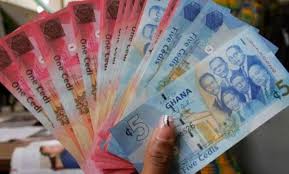THE GOVERNMENT IN A JAR OF PICKLES OVER STRENGTH OF CEDIS!
24, 5, 2025
165

In recent weeks, we have seen the cedi appreciate over 34% against the US dollar. This appreciation will most likely continue in the coming week if no action is taken.
Extreme situations in an economy are detrimental. Extreme inflation and deflation are harmful, as are extreme depreciation and appreciation. The economy relies on certainty and planning.
Supporters of the ruling government are expressing their satisfaction on social media, boasting about the administration's success in lowering the dollar's value. Some claim the president promised to bring the dollar to GH₵9, and that this is being realized. However, we must be cautious about what we wish for. My limited economics education teaches me that this could stifle economic growth.
Why do we want a stronger cedi? The MYTH is that a lower USD will result in cheaper goods and services. I use the term "myth" because this rarely happens. For every imported product or service, the businessman has costs and profit margins. When the dollar is high, their margins are squeezed, leading to reduced profits. Conversely, when the dollar is low, businesses typically increase their margins to recover profits. Therefore, consumers like you and me will not benefit from lower prices, regardless of how low the dollar drops. A typical example is petroleum prices: in the past four weeks, bulk distribution companies (BDCs) have made substantial profits on petrol and diesel while offering minimal reductions in prices to consumers.
Now, let’s discuss why both the government and citizens should be concerned. The government based the 2025 budget on an exchange rate of GH₵15.4 to the USD. This means that all foreign receipts for our exports (gold, cocoa, and oil) are calculated in cedis at this rate. If the current rate is GH₵11 or lower, the government loses GH₵4.4 or more for every dollar of export revenue. This loss will drastically reduce the cedis available for the government to undertake development projects, such as roads and infrastructure. Raw materials remain expensive (cement, iron rods), meaning the government needs to export twice the amount of goods to build the same road as last year.
Additionally, the Ghana Revenue Authority (GRA) may struggle to meet revenue targets because duties at our ports are a significant part of national revenue. Import costs are calculated using the current USD rate, affecting government receipts and foreign direct investment (FDI).
The finance minister and his economic advisers should be very concerned about the current currency uncertainty and the sudden drop.
Aside from the political noise and self-congratulation, I fail to see the benefits for us if the USD drops to GH₵9 or GH₵10. Traders are likely to resist reducing prices, and the government may struggle to meet its budget obligations.
The real test for the government is whether they can halt the decline. Is this decline a result of their policies, or is it due to panic selling by individuals holding USD as an investment?
The mid-year budget review next month will be interesting to watch as we see what policies the Minister of Finance will implement to prevent the economy from entering negative growth. 🤔
Kwadwo Poku
INSTEPR
Powered by Froala Editor

